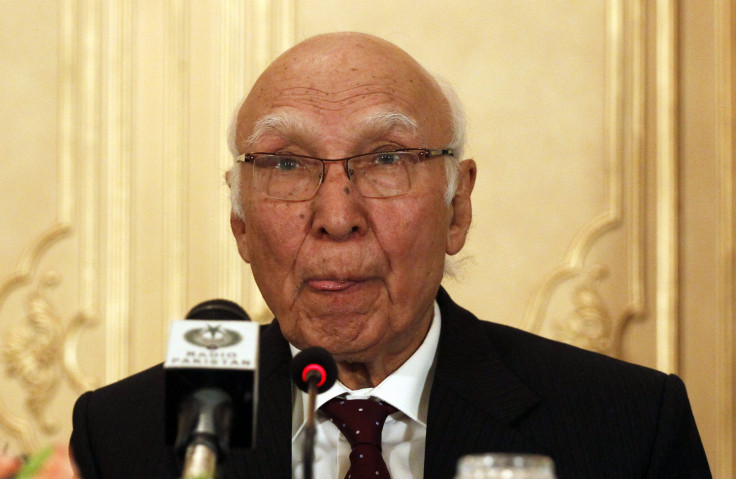Pakistan Denounces India's Entry Into Nuclear Suppliers Group, Warns US Support Could Destabilize Region

A top Pakistani official spoke out Tuesday night against the United States’ planned support of India’s entrance into the Nuclear Suppliers Group, a watchdog group that monitors the shipment and storage of nuclear material. Pakistan said further support and investment in India’s civilian nuclear energy program could upset the delicate balance of South Asia’s nuclear deterrence dynamic.
“The operationalization of Indo-U.S. nuclear deal for political and economic expediencies would have a detrimental impact on deterrence stability in South Asia,” Sartaj Aziz, an adviser to Pakistani Prime Minister Nawaz Sharif, said in a statement Tuesday night. “Pakistan reserves the right to safeguard its national security interests.”
U.S. and Indian officials reached agreements Sunday on several trade and political measures during President Barack Obama’s trip to New Delhi, according to the New York Times. India’s inclusion in the Nuclear Suppliers Group was a clear exception to the organization’s rules, Aziz said. The organization was formed after India’s internationally contested nuclear testing in the 1970s, Bloomberg notes.
The U.S.’s formal support of India’s civilian nuclear program came amid years of negotiation after a 2008 agreement that gave India the capacity to begin the program, Agence France-Presse reports. Previously, U.S. officials balked at India’s harsh liability laws regarding nuclear accidents. India had avoided signing the Nuclear Non-Proliferation Treaty, which aims to prevent the spread of nuclear programs for military purposes.
Pakistan also opposes U.S. support for India’s entry into the United Nations Security Council. Specifically, Aziz’s statement cited India’s actions in the nations’ ongoing skirmish over the disputed Kashmir region, where military action has intensified since last October.
“A country, in violation of United Nations Security Council resolutions on matters of international peace and security, such as the Jammu and Kashmir dispute, by no means qualifies for a special status in the Security Council,” the statement said.
© Copyright IBTimes 2024. All rights reserved.












